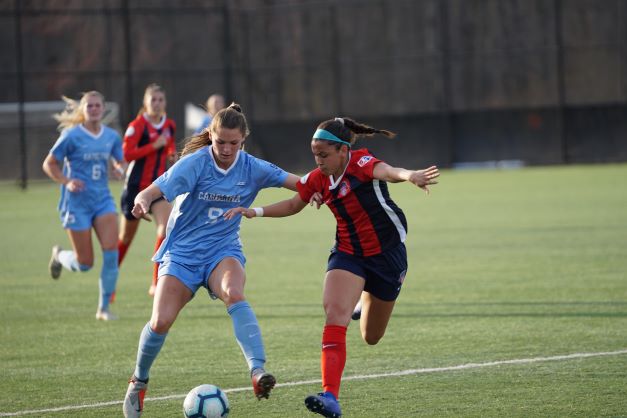Our athletes and sportspeople have been doing us proud in Birmingham. Our attention is drawn to male and female events alike with no disparity. If a medal is achieved, our nation basks in their success.
doing us proud in Birmingham. Our attention is drawn to male and female events alike with no disparity. If a medal is achieved, our nation basks in their success.
The New Zealand team in Birmingham is fronting more female athletes than males. When the excitement of the Birmingham games dies down, we can reflect on progress in some of our professional teams and pay equity.
Sport fans will have read recently of the ground-breaking news that the United States’ national women’s soccer team has scored a pay agreement that equalises the rate they receive for game appearances and tournament victories as the national men’s team.
The agreement will end the women’s guaranteed-salary system they previously had and put both national teams on a pay-for-play model. The previous salary system offered the women players security and a constant wage, but failed to reward players for their time on the field as the men’s wages did.
Top players will now receive higher match payments, shared World Cup pay-outs with the men and revenue-sharing splits with US Soccer. The shared World Cup pay-outs means that the prize money won by each team will be pooled and split between the teams equally, which corrects the imbalance that FIFA (the sport’s international governing institution in charge of the World Cups) pays the men’s tournament players significantly more than the women’s tournament players.
Another part of the agreement relates to revenue-sharing. This part could see the women players receive millions more from their cut of US Soccer’s commercial revenues each year. It is clearly a comprehensive accounting of the imbalance between the two teams’ pay.
A downside of the agreement is that it takes away resources that could be used to support all levels and all facets of the game. This is a similar problem faced by New Zealand Rugby. Indeed, lack of funding for women’s rugby and grass-roots clubs is part of the attraction behind the investment agreement by US private equity firm Silver Lake with New Zealand Rugby. Read more...

